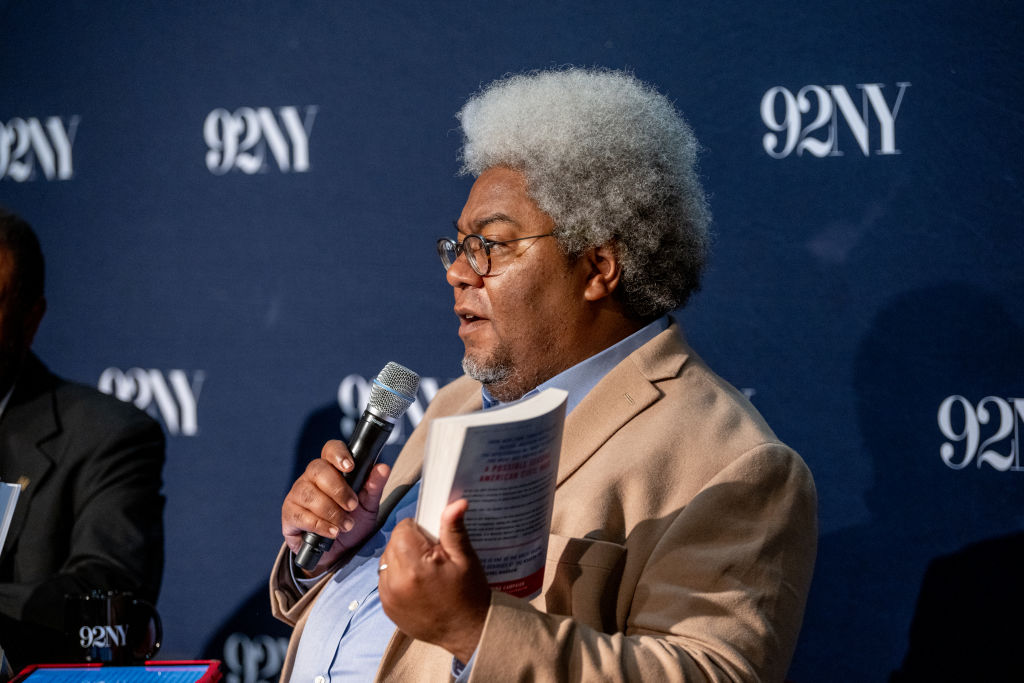SCOTUS Justice Kagan Says They’re Not Experts on the Internet, Questions if They’re Right Venue for Case Challenging Section 230
The Supreme Court Oral arguments were heard in the first of the two Big TechThere are a number of cases this week that could change the way online platforms manage content moderation.
Arguments heard Tuesday were in an instance known as Gonzalez v. Google, It examines whether the technology company can sue because of its subsidiary YouTube’s algorithmic videos recommendations. An argument that didn’t seem to influence a majority court.
The family of Nohemi Gonzalez, who was murdered in a 2015 Islamic State terrorist attack in Paris, claimed that YouTube’s targeted recommendations violated U.S. Anti-Terrorism Act because they helped radicalize viewers to support terrorist causes. ISIS propaganda.
HOW A SUPREME COURT RULING AGAINST GOOGLE COULD UPEND THE INTERNET AS WE KNOW IT
The U.S. Court of Appeals for 9th Circuit dismissed the appeal. Gonzalez It relied on Section 230 of The Communications Decency Act of 1996 to defend it. This federal law protects internet companies against liability for user-posted content.
Tuesday’s argumentation marked the first time the justices had to weigh the impact of the 1996 law. This could have a profound effect on the guidelines for what content can be posted online. It also affected whether platforms and users are legally liable for any content that is published.
The discussion centered on the question of whether YouTube should be subject to liability for its suggestions. “thumbnails” Videos and what it should matter if they are a “neutral” algorithm was used for highlighting content to users.
Justice Clarence Thomas Eric Schnapper raised the question with Eric Schnapper. He noted that the algorithm Eric Schnapper is using to recommend cooking videos is the same algorithm that Eric Schnapper is targeting.
“I don’t understand how a neutral suggestion about something you’ve expressed an interest in is aiding and abetting. I just don’t understand it,” Thomas was later joined by Justice Sonia Sotomayor In expressing similar skepticism.
Sotomayor observed that there must be an inherent “intent to aid and abet” YouTube algorithm to add merit to Schnappers claims.
“I guess the question is, how do you get yourself from a neutral algorithm to an aiding and abetting — an intent, knowledge,” Sotomayor also added.
Liberal Justice Elena Kagan Conservative Justice Brett Kavanaugh On Tuesday, the most prominent voices openly questioned whether the high court was the right venue to address Section 230’s scope.
“These are not the nine greatest experts on the internet,” Kagan’s comments about the Supreme Court’s judges prompted laughter from the guests at the arguments.
“Isn’t it better to keep it the way it is for us and Congress? To put the burden on Congress to change that,” Kavanaugh added that Section 230 is a violation of the Constitution. “They can consider the implications and make these predictive judgments.”
Kavanaugh changed the focus of their discussion to include several briefs from friends-of-the court that warned of widespread internet disruptions if Gonzalez was convicted.
“Lawsuits will be nonstop,” Kavanaugh stated, pressing Kagan on the same concerns.
Malcolm Stewart, U.S. deputy solicitor general, stated that Section 230 shouldn’t protect websites’ targeted recommendations of content. Stewart agreed. “there would be lots of lawsuits” But, he said that many of them would struggle to win. Kavanaugh and Chief Justice John Roberts disagreed with the idea that there would be an influx in lawsuits if plaintiffs prevail.
Google’s lawyer Lisa Blatt explained why Section230C1 created the internet today in the final hour of oral argument.
“No provider or user of an interactive computer service shall be treated as the publisher or speaker of any information provided by another information content provider,” Blatt quoted Section 230, C1
Conservative Justice Samuel Alito asked Blatt whether Google would. “collapse and the internet be destroyed” If there is any responsibility for the inability to remove content from an online platform “knows” To be defamatory.
Blatt claimed that Google would survive given its size, but she disagreed. “every other” Online platforms could be vulnerable “they’re not as big as Google.”
Yelp, Microsoft and Craigslist submitted friend-of the-court files indicating that a decision against Section 230 could also have an effect on any other content on the internet that might be interpreted as a recommendation to users.
However, Tuesday’s response by the justices suggests that they may not be considering Gonzalez to serve as a forum for both the Left and the Right to voice their concerns about Section 230.
Former President Donald Trump and President Joe Biden both called for repeal of Section 230. However, they had different reasons. Democrats believe Big Tech should be tougher about hateful content, disinformation, and Republicans say such companies remove too much content from the internet and censor conservative voices.
CLICK HERE FOR MORE INFORMATION FROM THE WASHINGTON XAMINER
On Wednesday, the Supreme Court will hear arguments in an identical case. Twitter vs. Taamneh This article examines the Anti-Terrorism Act’s scope and if Twitter or any other social media platform can be held responsible for claims that they assisted in terrorism.
On Wednesday, justices will release at least one opinion on cases that have been argued in the past. Both Big Tech cases will not be decided until the summer.
" Conservative News Daily does not always share or support the views and opinions expressed here; they are just those of the writer."





